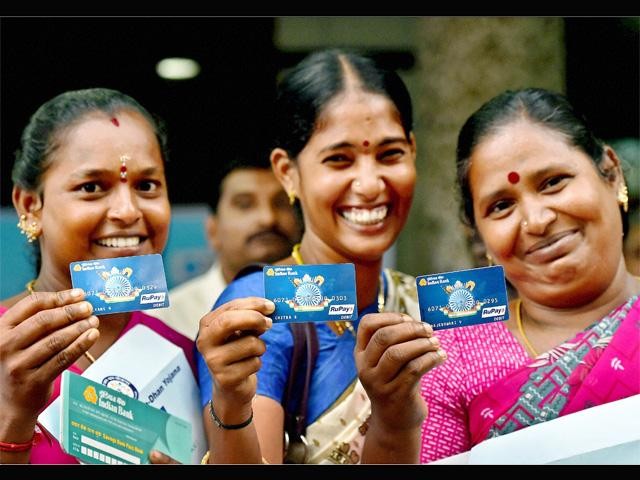
Overview
Market data indicate that across India 97 percent of retail transactions are conducted in cash or check, and only 6 percent of merchants accept digital payments. Inclusive electronic payments, such as mobile money and digital wallets, not only have the potential to lift millions out of poverty by providing them access to formal financial system, but can also improve governance by reducing costs and increasing transparency.
Recognizing this potential, USAID is partnering with the Government of India to create a network of more than 40 organizations to increase the usage of digital payment systems, particularly among low-income consumers. The partnership further supports the goals of Pradhan Mantri Jan Dhan Yojana (the Government of India’s flagship financial inclusion program) launched by Prime Minister Narendra Modi to mainstream financial services to all Indian households.
USAID/India's Financial Inclusion Program
Catalyst – Inclusive Cashless Payment Partnership: USAID and the Ministry of Finance established an independent entity, Catalyst, to facilitate the rapid adoption of digital payments in India as a step toward building an inclusive digital economy. Catalyst combines new technology and innovative business models to increase the reach of cashless payments tenfold over the next two years in select geographic locations.
The focus of USAID’s work on financial inclusion in India is on increasing the use of digital payments at “point of sale,” particularly among low-income consumers. We piloted business models to:
- Promote e-commerce by connecting low-income customers in urban slums with online retailers linked to microfinance institutions. These online retailers will also offer specific discounts to consumers who make purchases via this portal.
- Develop alternative lending models by arranging for customer data from a service provider that does not offer loans and sharing this data with a lending institution. The lending institution offers loans based on customers’ transaction details with the non-lending institution.
- Research challenges of a leading Fast Moving Consumer Goods (FMCG) company to digitize payments throughout its distribution chain (i.e., from retailer to distributor to the company).
- Support the India Stack project (an initiative by iSpirt, a group of technology volunteers) that seeks to make financial transactions paperless and cashless. The stack is a new technology paradigm that is scalable to handle massive data inflows and is poised to enable entrepreneurs, citizens, and governments to interact with each other transparently. It is an open system to electronically verify businesses, people, and services.








Comment
Make a general inquiry or suggest an improvement.